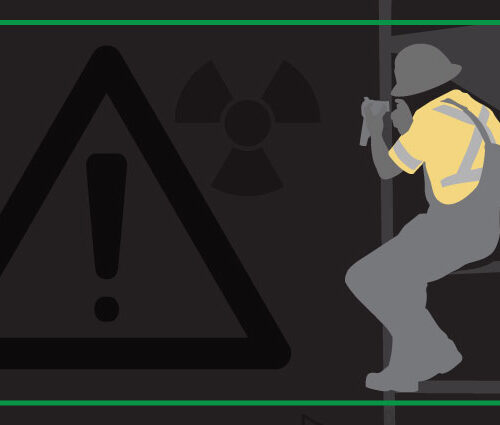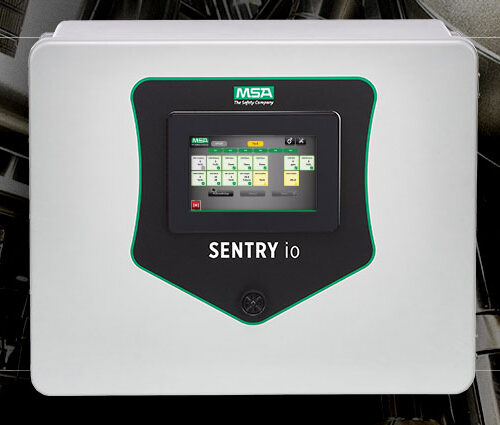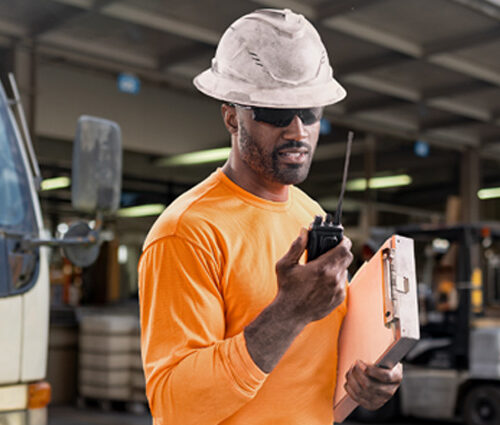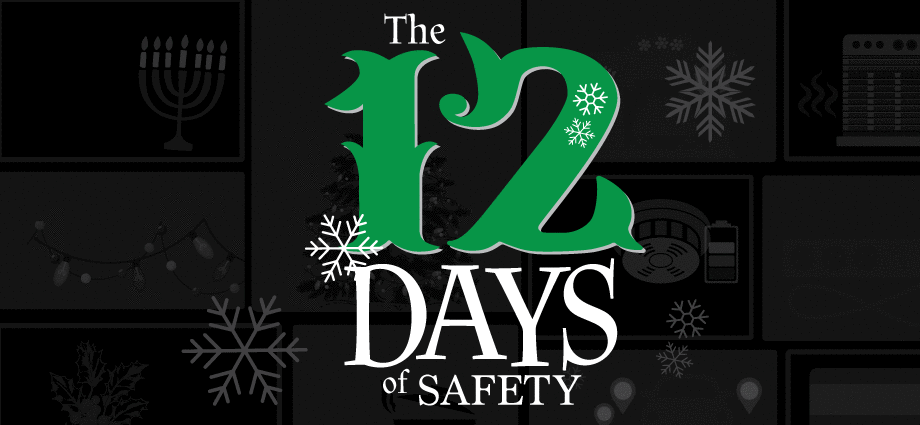
The holiday season is a time for twinkling lights and joyful celebrations. It’s also an important opportunity to prioritize safety and well-being. At MSA, we extend our warmest wishes for a safe and happy festive season. To help ensure your holidays remain merry and bright, here are 12 essential safety tips.
1. Never leave a burning candle unattended
On the first day of safety, remember to extinguish lit candles when leaving a room, your home, or going to sleep. According to the National Fire Protection Association (NFPA), most candle fires occur in December and January, and nearly half of house decoration fires in December are caused by a burning candle (1). Also, keep children and pets away from lit candles.
2. Treat your tree with care and water it regularly
On the second day of safety, prioritize your tree’s care. According to the NFPA, an average of 160 home fires each year stem from Christmas trees. (2) When choosing a live tree, follow the U.S. Consumer Product Safety Commission’s (CPSC) advice for freshness: a vibrant green color, little shedding of needles when pulled, and needles that don’t break when bending. Proper tree placement is crucial; avoid heat sources like fireplaces, vents, and radiators, which can ignite or dry out a tree. Keep the stand full of water and check it daily. For artificial trees, choose one labeled “fire-resistant.” (3)
3. Lights out leaves less risk
On the third day of safety, remember to turn off lights and decorations when you’re away from home or asleep. According to the NFPA, U.S. fire departments respond to an average of 793 home fires started by decorations annually, with an estimated additional 150 fires starting in a tree. (4) Only use lights tested for safety by a recognized safety lab and follow instructions for indoor and outdoor use. Before use, inspect each set for issues like broken or cracked sockets, frayed or bare wires, or loose connections. Discard damaged sets, and only plug outdoor lights into a ground-fault circuit interrupter (GFCI)-protected receptacle or a portable GFCI. (5)
4. Pets don’t mix with holiday plants, decorations, and foods
For our furry family members during the holidays, be mindful of potential hazards in their surroundings. On the fourth day of safety, keep an eye on what’s within your pet’s reach. The U.S. Food and Drug Administration (FDA) highlights the toxicity of holiday plants like poinsettias, mistletoe, and holly to pets. Be cautious of decorative tinsel and ribbon, which can lead to digestive issues. And don’t succumb to those sad puppy eyes at the dinner table—sharing holiday meal scraps can cause potentially life-threatening pancreatitis or dangerous stomach lacerations from bones. (6)
5. Never leave cooking and baking unattended
NFPA reports cooking fires are the leading cause of home fires, peaking on Thanksgiving Day, Christmas Day, and Christmas Eve. On the fifth day of safety, stay vigilant in the kitchen. Over a quarter of home cooking fires result from unattended cooking equipment. Don’t leave the kitchen while cooking, and use timers and reminders. Keep flammable items like oven mitts, cooking utensils, kitchen towels, and food packaging away from flames and hot surfaces. Ranges and cooktops account for more than half of home cooking fire incidents. (7)
6. Perform proper wood-burning fireplace maintenance and don’t burn gift wrap
While the stockings are hung by the chimney with care, make sure that the chimney has been maintained before you place them there. On the sixth day of safety, ensure your fireplace is safe to use. According to the Federal Emergency Management Agency (FEMA), your wood-burning fireplace and chimney should be professionally inspected and cleaned annually. Place glass or a screen in front of an open fire to prevent sparks from jumping out. (8) Don’t burn wrapping paper as it can result in a flash fire and burn hot, according to the CPSC. (9) Also, keep Christmas trees at least three feet away from fireplaces. (10)
7. Use space heaters safely and don’t leave them turned on
On the seventh day of safety, exercise caution when using space heaters. According to the NFPA, they contribute to one-third of heating-related fires and nearly nine out of ten heating-related deaths. (11) Keep space heaters three feet away from flammable items and people. Ensure children stay away, and always plug them directly into a wall, avoiding extension cords. Remember to turn off and unplug heaters when leaving the room or going to sleep. (12)
8. Test your smoke detector and change batteries if needed
On the eighth day of safety, stay vigilant when it comes to testing smoke detectors. The U.S. Fire Administration says you may have less than two minutes to escape a house fire once the alarm sounds. (13) NFPA research found three in five deaths in home fires occurred in a home without a smoke detector, but having working detectors reduces the risk of death by 55%. (14) According to the CPSC, you should have a working smoke alarm on every floor and in every bedroom, testing them monthly and changing the batteries annually. (15)
9. Pay attention to how you use extension cords and don’t overload circuits
On the ninth day of safety, be cautious with extension cords and follow guidelines to reduce fire risk. Avoid overloading circuits or sockets; use no more than three standard-size sets of lights per extension cord. (16) Ensure your extension cord is suitable for the intended environment (indoor or outdoor) and discard any cords showing signs of fraying or cuts. (17)
10. Watch the forecast and know what to do if caught in snow or severe weather
On the tenth day of safety, heed weather warnings. Slow down when encountering snowy or wet roads in cold areas, and turn on your hazard lights when driving in white-out conditions. If stuck in snow, run the car every ten minutes for warmth, ensuring the exhaust pipe is clear of snow to prevent the cabin from filling up with dangerous carbon monoxide. (18) Severe storms and tornadoes are possible in the winter, including around the holidays. While traveling, always know the county you’re in and make sure your phone’s Wireless Emergency Alert feature is on so you receive major warnings.
11. Ho! Ho! Hold up on making those online purchases until you verify where you’re buying from
On the eleventh day of safety, be alert while shopping online. The Federal Bureau of Investigation (FBI) advises checking with the Better Business Bureau before sharing information with unknown online retailers. Verify the legitimacy of social media-advertised websites and be cautious of ads offering items at unrealistically low prices. Keep anti-virus and malware software updated, and avoid making purchases over public Wi-Fi networks. Immediately notify your financial institution if you believe you’ve fallen victim to a scam or fraud. (19)
12. Drive sober and make a plan to get home safely
On the twelfth day of safety, drive sober or make a plan to get home safe. According to the National Highway Traffic Safety Administration (NHTSA), about one-third of fatal U.S. car crashes involve a drunk driver. Always plan a safe way home when holiday gatherings involve alcohol. A DUI, whether from alcohol, marijuana, or other impairing substances, can lead to severe consequences, including jail time and hefty fines. Always drive 100% sober or arrange for a designated driver, taxi, or rideshare if you plan to drink or use impairing substances. (20)
From all of us at MSA Safety, we wish you a safe and merry holiday season and a happy New Year in 2024!
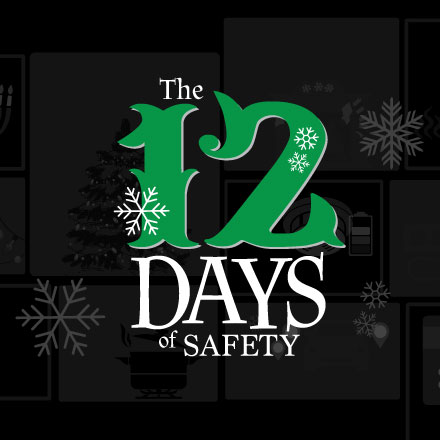
Download The 12 Days of Safety infographic to reference all season long.
Get Holiday Safety Tips

